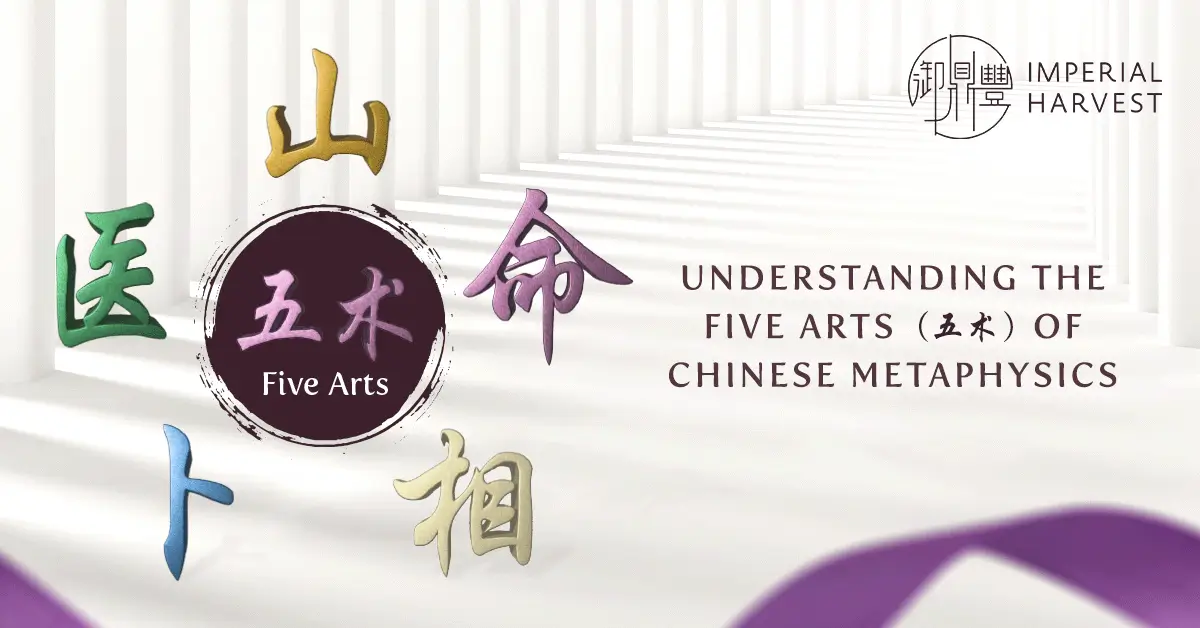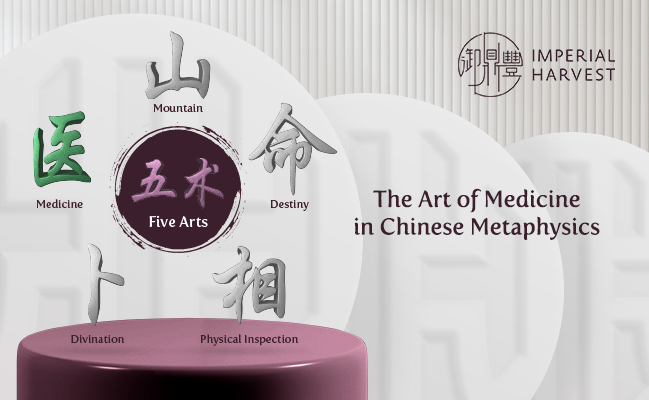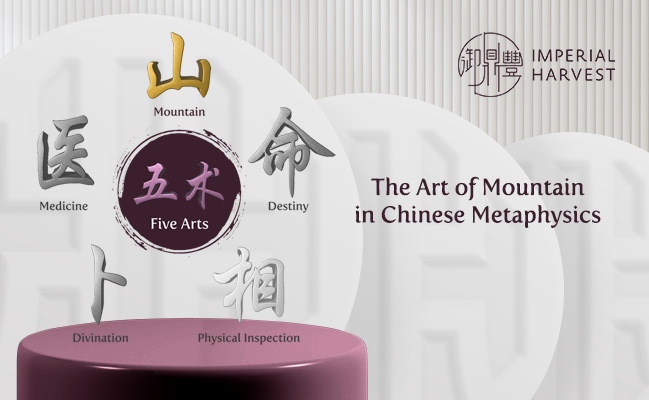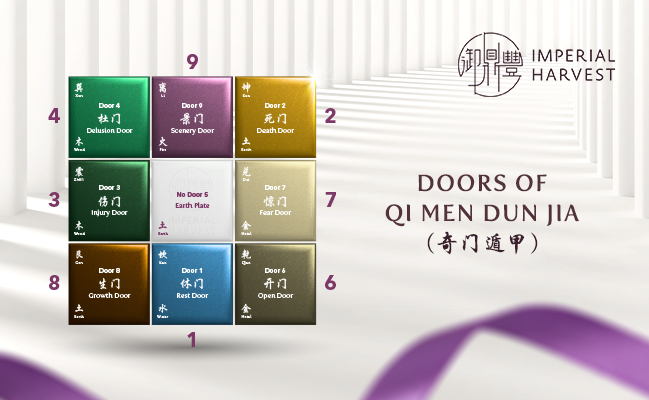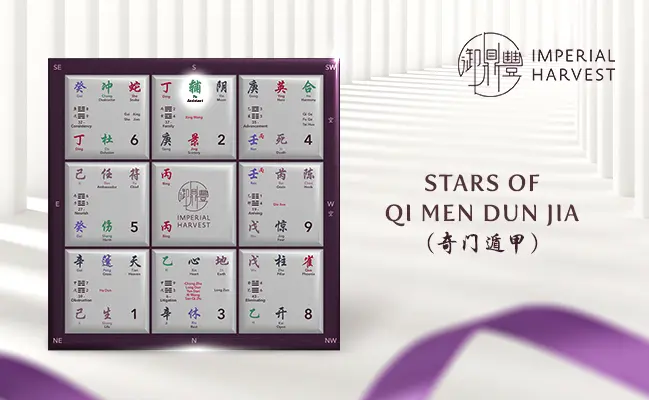

Posted by Imperial Harvest on 01 March 2024
The Art of Divination in Chinese Metaphysics
Estimated Reading Time: 3 mins
The Five Arts (五术) form the foundation of Chinese metaphysics, embodying an all-encompassing approach towards personal growth and balanced living. These arts, defined as Mountain (山), Medicine (医), Divination (卜), Physical Inspection (相), and Destiny (命), each contribute to a rich understanding of wisdom and harmony.
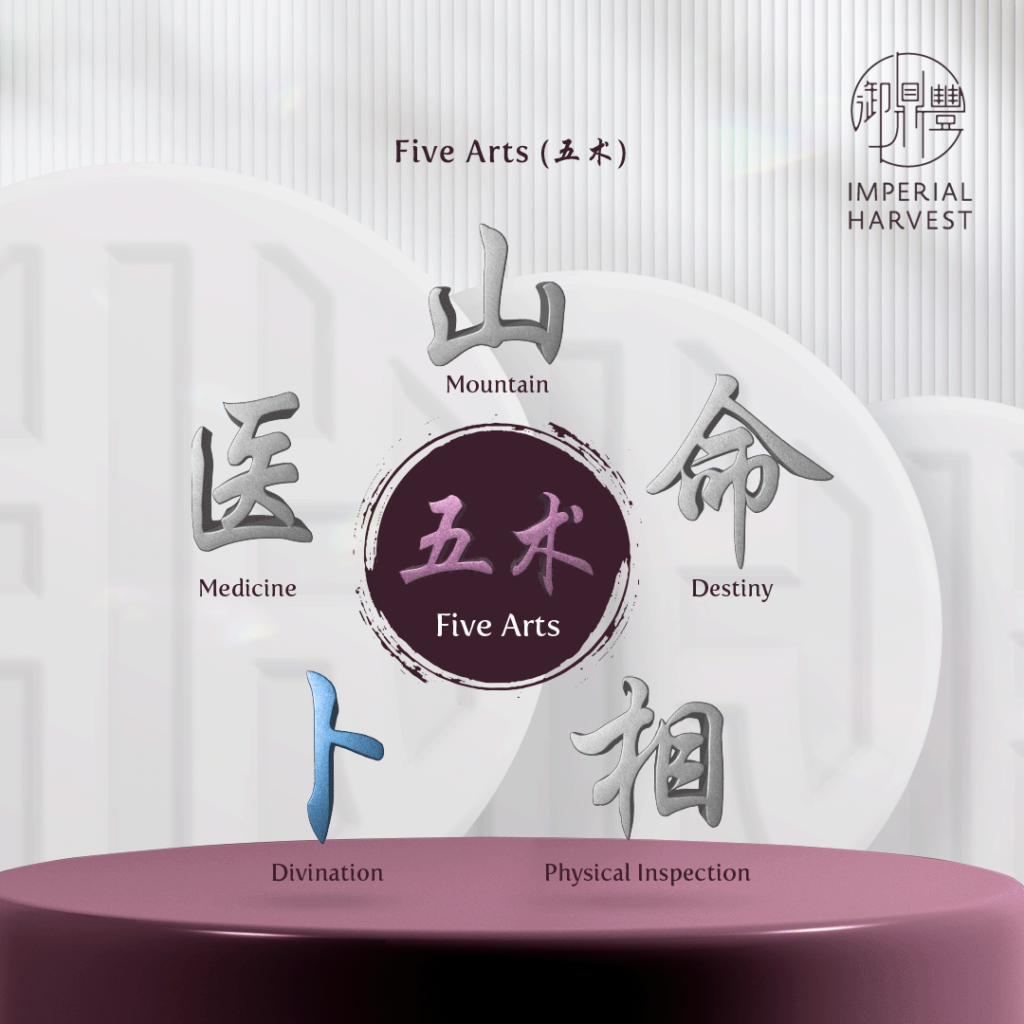
Key Disciplines within the Art of Divination
The ancient Art of Divination holds a revered position in Chinese cultural history, focusing on three primary techniques: forecasting the future, selecting auspicious dates, and deciphering the flow of cosmic energies. Its techniques were widely used by prominent military and political figures in Chinese history, such as Zhuge Liang (诸葛亮), Li Chunfeng (李淳风), Liu Bowen (刘伯温), and Zeng Guofan (曾国藩), adeptly wielding this art to make strategic military decisions.
The Art of Divination in Chinese metaphysics focuses on foreseeing future events, intricately woven with the threads of present actions, emphasising cause-and-effect dynamics. This art form stands apart from other life analysis methods, like Bazi (八字). Instead, it focuses on discerning near-future occurrences, typically within a refined one to five-year span. This art is divided into two forms: static divination, where outcomes are absolute, and dynamic divination, where outcomes can be altered.
Throughout history, the Art of Divination guided the decision-making processes of Chinese emperors, steering their strategic moves. Today, divination serves as a compass, enabling us to foresee and plan our decisions strategically.
Techniques within the Art of Divination include Yi Jing Oracle (卜卦), Plum Blossom Divination (梅花易数), Tai Yi Shen Shu (太乙神数), Qi Men Dun Jia (奇门遁甲), and Da Liu Ren (大六壬).
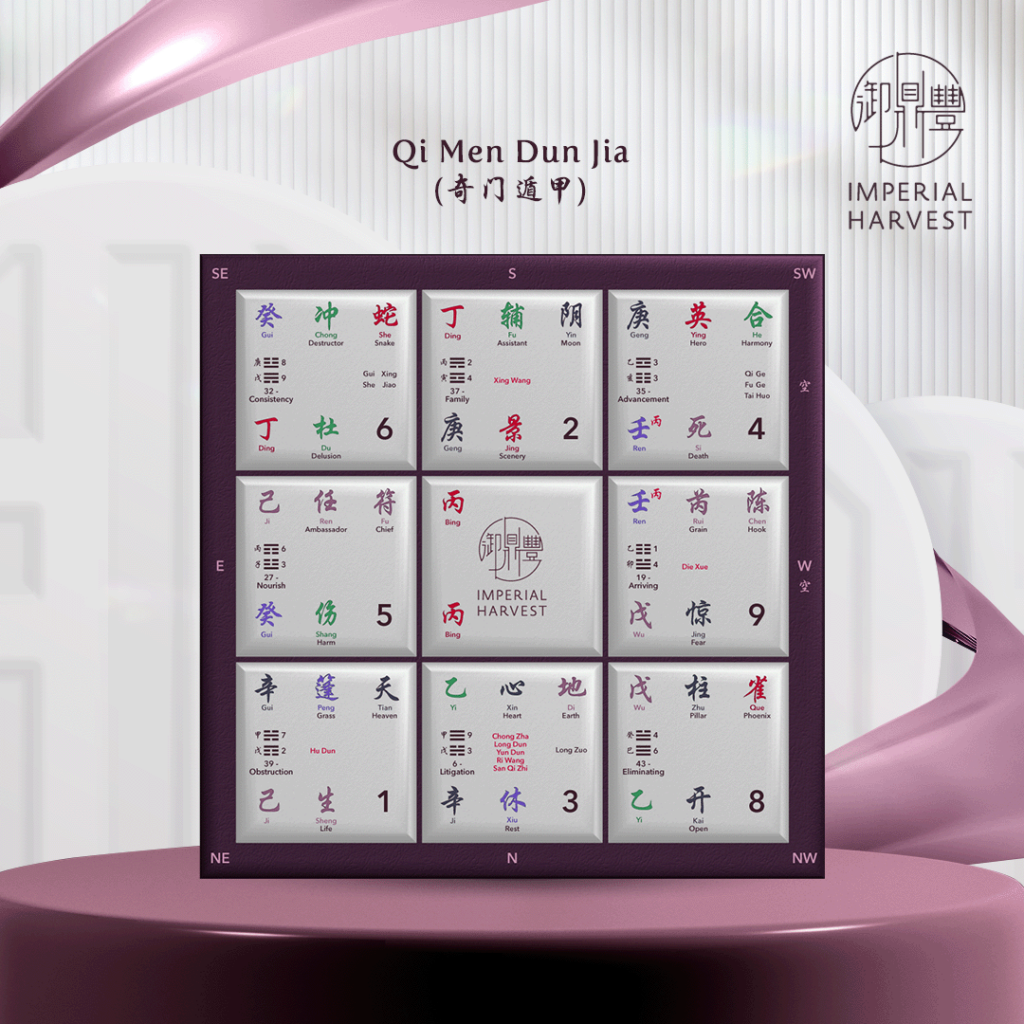
History of the Art of Divination
According to Chinese legends and mythology, Fu Xi (伏犧) is widely credited with the creation of the I-Ching (易经), setting the foundation for Chinese divination practices.
The Art of Divination flourished during the Zhou dynasty (1046 to 256 BC), particularly with the I-Ching as a divination tool. In the later years of this dynasty, Confucius (孔子), revered as a sage, reinterpreted the I-Ching, seeing it as a means for personal introspection and moral direction. However, the Qin dynasty (221 to 206 BC) marked a period where divination was banned, though it continued discreetly.
Divinatory arts saw a resurgence during the Tang dynasty (618 to 907 AD), reintroducing various forms of divination such as Na Jia divination (纳甲筮法), Plum Blossom Divination (梅花易数), and the Three Styles — Liu Ren (六壬), Tai Yi Divine Numeration (太乙神), and Qi Men Dun Jia (奇门遁甲) into the socio-cultural fabric of dynastic China. Under Emperor Taizong’s rule, the Art of Divination saw further advancements, in part due to his consultations with diviners and astrologers in making inspired decisions. These consultations resulted in the publication of the treatise based on the I-Ching, “Early Heaven Bagua”《先天八卦》.
Modern Applications for the Art of Divination
Today, the Art of Divination serves as a vital tool for personal guidance and has expanded its utility into business and financial matters. Techniques like Qi Men Dun Jia (奇门遁甲) have evolved to play pivotal roles in decision-making processes within these sectors, offering insights derived from the alignment of astronomical observations with principles of Chinese metaphysics.
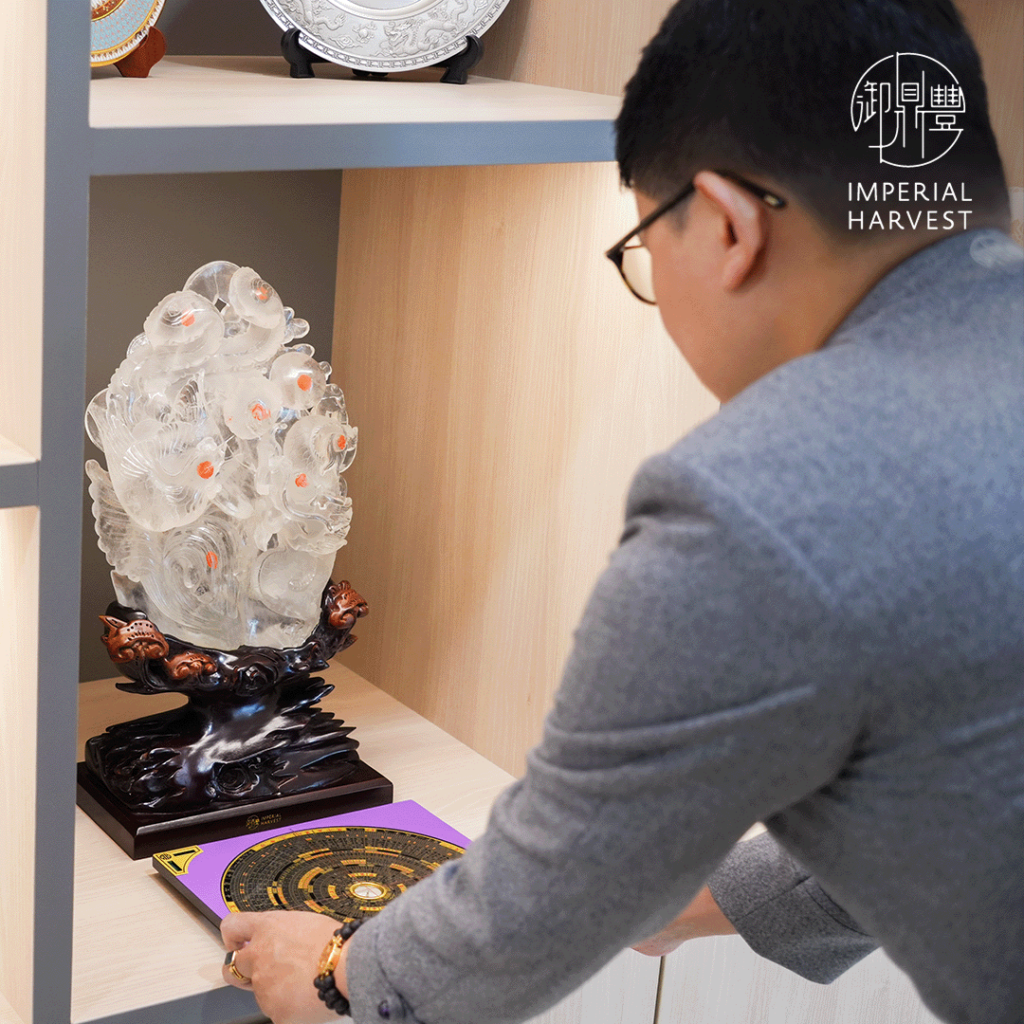
Qi Men Dun Jia serves as a powerful method for selecting the most auspicious moments and directions for taking decisive actions in various areas such as business, investments, and career paths. This calculation tool integrates astronomical insights with elements of Chinese metaphysics to provide precise guidance for achieving desired outcomes.
Comprising three fundamental components, Qi Men Dun Jia encompasses Qi (奇), Men (门), and Dun Jia (遁甲). Qi represents three specific Heavenly Stems: Yi (乙), Bing (丙), and Ding (丁), while Men, translated as “Door,” symbolises an individual’s interpersonal relationships. Dun Jia refers to the remaining six Heavenly Stems: Wu (戊), Ji (己), Geng (庚), Xin (辛), Ren (壬), and Gui (癸), all concealing the foundational Heavenly Stem, Jia (甲).
This practice encompasses different components: the Stems, Doors, Stars and Deities of Qi Men Dun Jia.
In essence, the Art of Divination holds a profound significance spanning historical and contemporary contexts alike. Once wielded by influential figures for strategic aims, its influence now extends to modern decision-making arenas, including personal, business, and financial spheres. This enduring and dynamic art form serves as a cornerstone of Chinese cultural heritage, seamlessly uniting traditional wisdom with contemporary practices.
Imperial Harvest’s expert consultants are always on hand to guide you on your journey and provide you with insights to help you realise your fullest potential. Book a complimentary consultation today or contact us at +65 92301640.
We are located at
For prospective clients:Imperial Harvest402 Orchard Road
Delfi Orchard #02-07/08
Singapore 238876 For existing clients:Imperial Harvest Prestige
402 Orchard Road
Delfi Orchard #03-24/25
Singapore 238876
Most Read Articles
Get to read our life changing articles and get inspired.
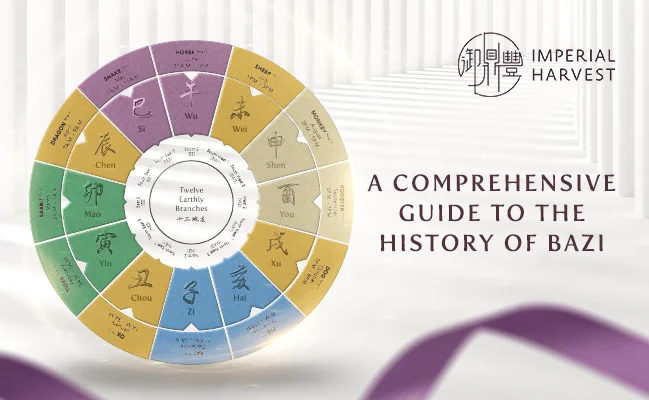
A Comprehensive Guide to the History of Bazi (八字)
Estimated Reading Time: 5 mins Bazi (八字) is often mistakenly assumed as the Chinese counterpart of western Astrology. The similarities between both systems lie in their utilisation of birth dates and time in their calculations, and the ability to be read from a tabulated chart. Where Astrology may take into account the positions of different […]

Imperial Harvest Consecration Ceremony
Estimated Reading Time: 5 mins At Imperial Harvest, each earthly treasure undergoes a series of consecration rites performed by Master David, before it is bestowed upon its blessed owner. Every aspect of these sacred Chinese anointing rituals is carefully examined and accurately represented in Master David’s blessings, reflecting Imperial Harvest’s deep respect for these esteemed […]
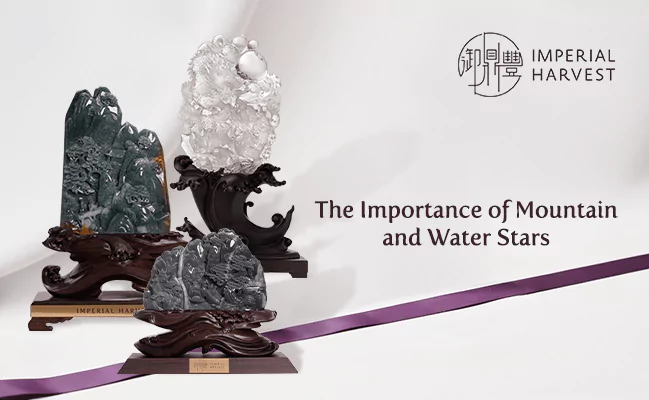
The Importance of Mountain and Water Stars
Estimated Reading Time: 4 mins “山管人丁,水管财”, is a well-cited principle in the study of Imperial Feng Shui that translates to “Mountains govern benefactors, authority and harmony, while Water governs wealth, opportunities and intuition”. This principle reiterates a critical factor in Imperial Feng Shui — balance is the key to achieving success in life. As mountain […]
